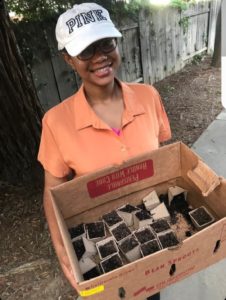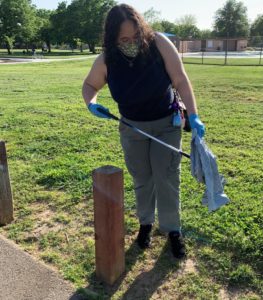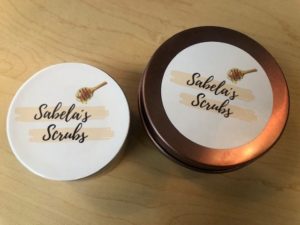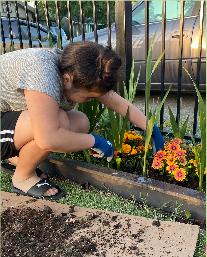2021, Sacramento, CA, USA
George Washington Carver High School students Alicia Hernandez, Nyla Jones, and Brandon Chu initiated a project that aims to raise awareness about declining pollinator populations well as establish habitat and nectar sources for native bees. The group grew pollinator- friendly plant species from seed to establish gardens and to give plant starts to members of their community. A brochure that discusses the importance of pollinators, the benefits of the species chosen, and tips for plant care will accompany the plants they distribute. Caring for Our Watersheds funding from Nutrien helped the group purchase materials needed for planting and outreach.
species from seed to establish gardens and to give plant starts to members of their community. A brochure that discusses the importance of pollinators, the benefits of the species chosen, and tips for plant care will accompany the plants they distribute. Caring for Our Watersheds funding from Nutrien helped the group purchase materials needed for planting and outreach.


